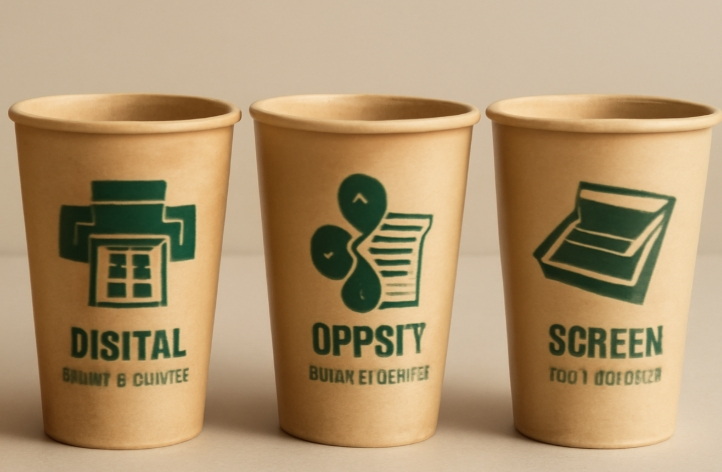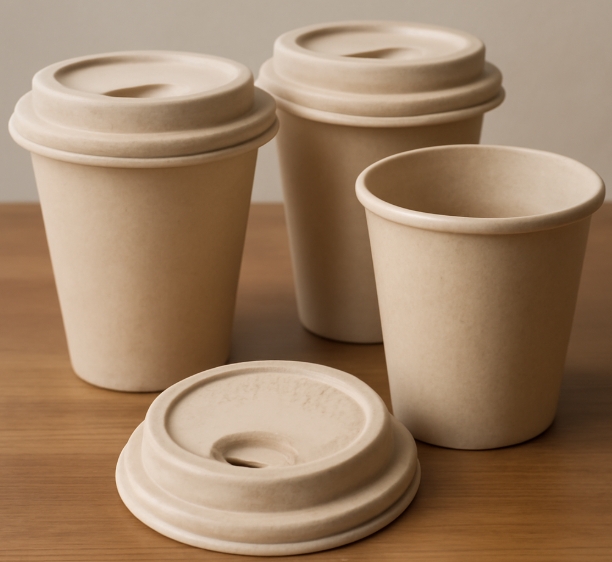
Content Menu
● Understanding Disposable Cup Dispensers
● Types of Disposable Cup Dispensers
>> In-Counter Cup Dispensers
>> Countertop Cup Dispensers
>> Wall-Mounted Cup Dispensers
>> Surface or Stand-Mounted Dispensers
>> Specialized Dispensers
● Key Considerations When Choosing a Dispenser
>> Cup Size and Type
>> Capacity
>> Dispensing Mechanism
>> Ease of Refilling and Maintenance
>> Hygiene and Sanitation
>> Aesthetics and Durability
● Materials and Durability
● Placement and Installation Options
● Maintenance and Hygiene
● Sustainability and Environmental Impact
● Matching Dispensers to Cup Types
● Common Mistakes to Avoid
● Conclusion
● FAQ
>> 1. What is the difference between in-counter and countertop disposable cup dispensers?
>> 2. Can one disposable cup dispenser fit multiple cup sizes?
>> 3. How do I maintain hygiene with my disposable cup dispenser?
>> 4. Are there eco-friendly options for disposable cup dispensers?
>> 5. What should I do if my dispenser jams or fails to dispense cups properly?
Selecting the right disposable cup dispenser is a decision that can influence the cleanliness, efficiency, and overall user experience in any setting where beverages are served. Whether you manage a bustling café, organize events, oversee an office break room, or maintain a public facility, the right dispenser ensures cups are dispensed easily, hygienically, and without unnecessary waste. This comprehensive guide will help you navigate the options and considerations so you can confidently choose the best disposable cup dispenser for your needs.

Understanding Disposable Cup Dispensers
Disposable cup dispensers are designed to store and dispense single-use cups in an organized, accessible, and sanitary manner. They are essential in environments where people serve themselves beverages, such as cafeterias, offices, healthcare facilities, hotels, and public venues. The right dispenser not only keeps cups tidy but also helps control usage, minimize waste, and prevent contamination.
Types of Disposable Cup Dispensers
Understanding the different types of disposable cup dispensers will help you identify which is best suited to your space and needs.
In-Counter Cup Dispensers
These dispensers are installed directly into a countertop, offering a sleek, integrated look. They are perfect for high-traffic self-service areas like cafeterias or fast-food restaurants. In-counter dispensers often have adjustable gaskets or baffles to accommodate different cup sizes and ensure smooth dispensing.
Countertop Cup Dispensers
Countertop dispensers are freestanding units that sit on any flat surface. They are easy to move and reposition, making them ideal for offices, break rooms, and small cafés. Their portability allows for flexible placement and easy cleaning.
Wall-Mounted Cup Dispensers
Wall-mounted dispensers are attached to walls or the sides of machines, saving valuable counter space. They are commonly found near water coolers, vending machines, and in areas where space is at a premium. Wall-mounted dispensers keep cups accessible while maintaining a tidy environment.
Surface or Stand-Mounted Dispensers
These dispensers can be attached to vertical surfaces or mounted on stands, making them suitable for areas with limited counter space or where mobility is required. Stand-mounted dispensers are particularly useful for events or temporary beverage stations.
Specialized Dispensers
Specialized dispensers are designed for specific cup types, such as cone cups or portion cups. Some units combine cup and lid dispensers, providing added convenience and organization in busy environments.
Key Considerations When Choosing a Dispenser
Selecting the right disposable cup dispenser involves evaluating several important factors to ensure optimal performance and user satisfaction.
Cup Size and Type
It is crucial to ensure the dispenser is compatible with the size and type of cups you use. Some dispensers are adjustable and can accommodate a range of cup sizes, while others are designed for a specific size or type, such as paper, plastic, foam, or cone cups.
Capacity
Consider the volume of traffic in your location. High-capacity dispensers are necessary for busy environments to reduce the frequency of refilling and minimize disruptions during peak times.
Dispensing Mechanism
Look for a dispenser with a reliable dispensing mechanism that allows one-at-a-time dispensing. This feature helps minimize waste and prevents users from touching multiple cups, improving hygiene.
Ease of Refilling and Maintenance
Choose a dispenser with easy loading features, such as front-loading or top-hinged lids. Non-proprietary dispensers offer flexibility in cup sourcing and can help reduce operational costs.
Hygiene and Sanitation
Select models that protect cups from dust, spills, and contaminants. Enclosed tubes, protective side panels, and one-at-a-time dispensing mechanisms all contribute to a more sanitary environment.
Aesthetics and Durability
Consider the material and finish of the dispenser to match your décor and withstand daily use. Stainless steel and high-quality plastics are popular for their durability and attractive appearance.

Materials and Durability
Disposable cup dispensers are commonly made from materials such as stainless steel, ABS plastic, or powder-coated steel. Each material offers unique advantages:
- Stainless Steel: Known for its durability, corrosion resistance, and ease of cleaning. It is ideal for high-traffic or commercial environments where longevity is essential.
- ABS Plastic: Lightweight, impact-resistant, and available in various colors. It is suitable for offices and lower-traffic areas where aesthetics and versatility are important.
- Powder-Coated Steel: Offers a balance of durability and cost-effectiveness, with added protection against rust and wear.
When choosing a dispenser, consider both your budget and the expected level of use to ensure you select a material that will last.
Placement and Installation Options
The placement of your disposable cup dispenser can impact both its functionality and the overall appearance of your beverage service area.
- In-Counter Installation: Provides a seamless, professional look and keeps counters free of clutter. This option is ideal for permanent setups but requires professional installation.
- Countertop Placement: Offers flexibility and easy access. Countertop dispensers are best for temporary or frequently changing layouts.
- Wall Mounting: Saves counter space and is perfect for areas with limited surfaces, such as near water coolers or vending machines.
- Stand Mounting: Allows for mobility and is suitable for events or temporary stations where the location may change frequently.
Consider user flow, accessibility, and available space when deciding on the best placement for your dispenser.
Maintenance and Hygiene
Proper maintenance of your disposable cup dispenser is essential for hygiene and longevity. Here are some best practices:
- Regular Cleaning: Wipe down the exterior and interior with mild soap and water. Disinfect surfaces regularly to prevent the spread of germs.
- Check for Jams: Periodically inspect the dispensing mechanism for blockages or misaligned cups to ensure smooth operation.
- Refill Properly: Follow manufacturer instructions for loading cups to avoid jams and ensure consistent dispensing.
- Monitor for Wear: Replace gaskets or other wear parts as needed to maintain optimal performance and prevent breakdowns.
Sustainability and Environmental Impact
As awareness of environmental issues grows, many businesses are seeking sustainable options for both cups and dispensers.
- Eco-Friendly Cups: Choose dispensers compatible with biodegradable, compostable, or recyclable cups to reduce environmental impact.
- Waste Reduction: One-at-a-time dispensing helps minimize cup waste and reduces overall consumption.
- Recyclable Materials: Select dispensers made from recyclable or long-lasting materials to further lessen your environmental footprint.
By prioritizing sustainability, you demonstrate a commitment to responsible business practices and help protect the planet.
Matching Dispensers to Cup Types
Not all disposable cup dispensers are compatible with every cup type. Here's how to ensure a good fit:
- Paper Cups: Most dispensers accommodate standard paper cups, but always check for compatibility with cup rim diameter and height.
- Plastic Cups: Ensure the dispenser can handle the rigidity and size of plastic cups, which may stack differently than paper cups.
- Foam Cups: Some dispensers are specifically designed for foam cups, which can be prone to sticking or crushing if not properly supported.
- Cone Cups: Require specialized dispensers that hold and dispense cone-shaped cups securely.
Always verify the specifications of both your cups and the dispenser before making a purchase.
Common Mistakes to Avoid
- Ignoring Cup Size Compatibility: Using the wrong dispenser for your cup size leads to jams and waste.
- Overlooking Traffic Volume: Choosing a low-capacity dispenser for a high-traffic area results in frequent refilling and user frustration.
- Neglecting Hygiene Features: Open or poorly protected dispensers can expose cups to contaminants.
- Disregarding Maintenance Needs: Complex or hard-to-clean dispensers can become a sanitation hazard over time.
- Failing to Plan for Future Needs: If you frequently change cup sizes or types, opt for adjustable or universal dispensers to avoid costly replacements.
Conclusion
Choosing the right disposable cup dispenser is about more than just convenience—it's about ensuring hygiene, reducing waste, and enhancing the overall experience for your customers, employees, or guests. By considering cup type, capacity, dispenser mechanism, material, and placement, you can select a dispenser that fits seamlessly into your environment and meets your operational needs. Remember to prioritize hygiene and sustainability, and always match your dispenser to the cups you plan to use. With the right disposable cup dispenser, you'll enjoy a cleaner, more efficient, and more professional beverage service area.

FAQ
1. What is the difference between in-counter and countertop disposable cup dispensers?
In-counter dispensers are installed directly into a counter, providing a flush, integrated look and saving surface space. Countertop dispensers are freestanding units placed on top of counters, offering flexibility and easy relocation.
2. Can one disposable cup dispenser fit multiple cup sizes?
Some dispensers feature adjustable gaskets or baffles that allow them to accommodate a range of cup sizes. Others are designed for a specific size or type, so always check product specifications before purchasing.
3. How do I maintain hygiene with my disposable cup dispenser?
Regularly clean the dispenser with mild soap and water, disinfect surfaces, and ensure cups are loaded properly to avoid contamination. Enclosed designs and one-at-a-time dispensing mechanisms further enhance hygiene.
4. Are there eco-friendly options for disposable cup dispensers?
Yes, many dispensers are compatible with biodegradable or recyclable cups, and some are made from recyclable materials themselves. Look for dispensers that support one-at-a-time dispensing to minimize waste.
5. What should I do if my dispenser jams or fails to dispense cups properly?
Check for misaligned or damaged cups, clean the dispensing mechanism, and ensure you are using the correct cup size for your dispenser. If problems persist, consult the manufacturer's troubleshooting guide or customer support.

















